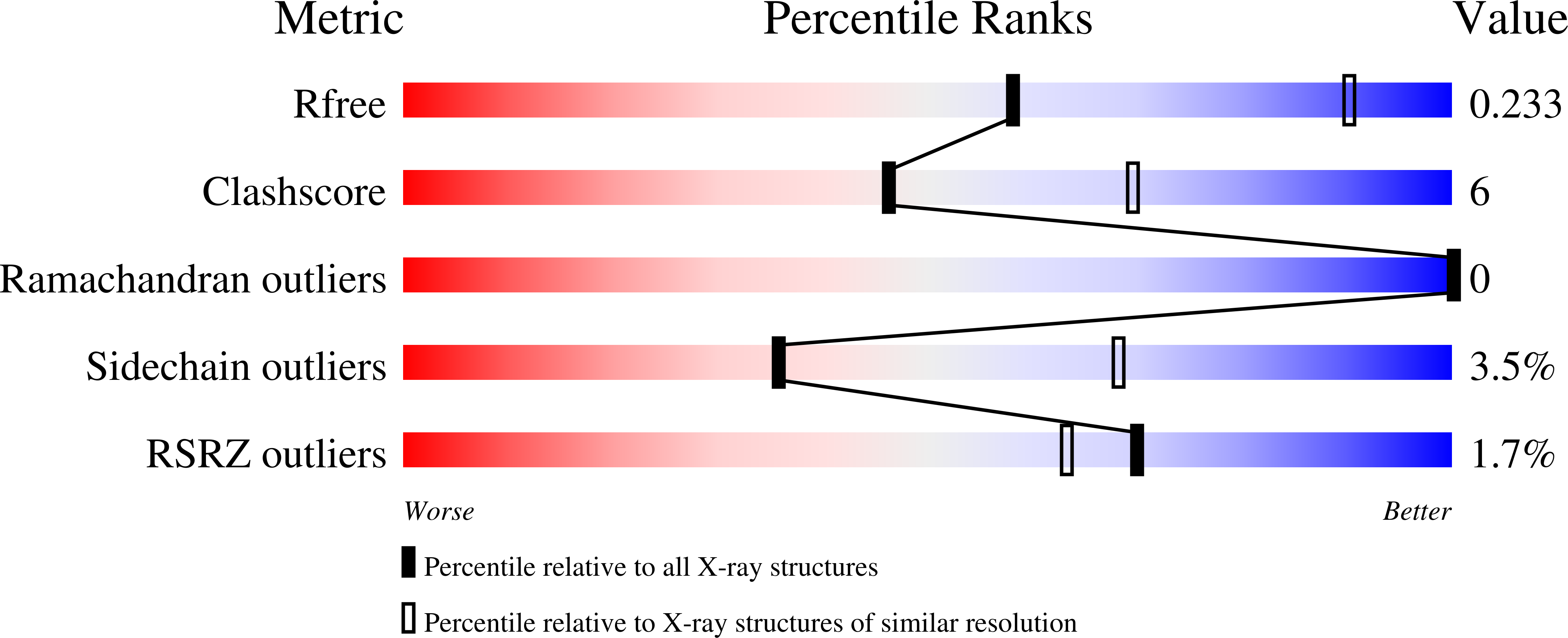The mechanism of retroviral integration from X-ray structures of its key intermediates
Maertens, G.N., Hare, S., Cherepanov, P.(2010) Nature 468: 326-329
- PubMed: 21068843
- DOI: https://doi.org/10.1038/nature09517
- Primary Citation of Related Structures:
3OS0, 3OS1, 3OS2 - PubMed Abstract:
To establish productive infection, a retrovirus must insert a DNA replica of its genome into host cell chromosomal DNA. This process is operated by the intasome, a nucleoprotein complex composed of an integrase tetramer (IN) assembled on the viral DNA ends. The intasome engages chromosomal DNA within a target capture complex to carry out strand transfer, irreversibly joining the viral and cellular DNA molecules. Although several intasome/transpososome structures from the DDE(D) recombinase superfamily have been reported, the mechanics of target DNA capture and strand transfer by these enzymes remained unclear. Here we report crystal structures of the intasome from prototype foamy virus in complex with target DNA, elucidating the pre-integration target DNA capture and post-catalytic strand transfer intermediates of the retroviral integration process. The cleft between IN dimers within the intasome accommodates chromosomal DNA in a severely bent conformation, allowing widely spaced IN active sites to access the scissile phosphodiester bonds. Our results resolve the structural basis for retroviral DNA integration and provide a framework for the design of INs with altered target sequences.
Organizational Affiliation:
Division of Infectious Diseases, Imperial College London, St Mary's Campus, Norfolk Place, London W2 1PG, UK.




















